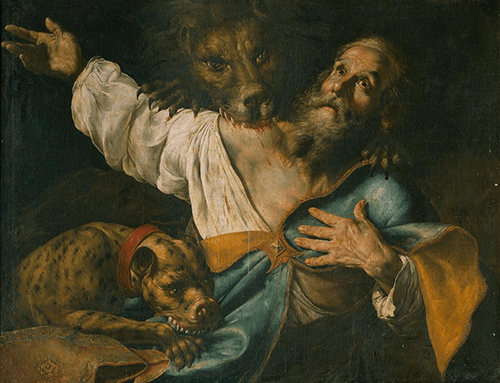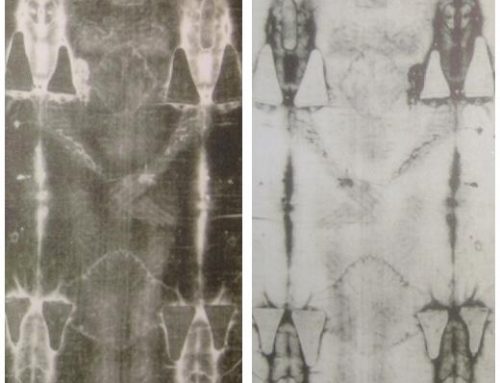
Watchman Nee wrote prolifically, largely for the benefit of his Little Flock. One such work is the little book, Let Us Pray. Nee writes in a simple, heartfelt style. As he writes, he seems to come at his point from many different directions as though walking about and inspecting every aspect of it. Some may find this repetitive, but I found it has the effect of engendering familiarity with the concept and broadening the understanding.
Nee begins his book with a discussion of why we must pray. He argues, “The foremost question to be asked is, Why pray? What is the use of praying? Is not God omniscient as well as omnipotent? Why must He wait till we pray before He commences to work?” (Nee 2014) He then proceeds to show that this is indeed the case. God has so ordered creation that His will is done on earth only through the cooperation with and participation of His people. This partnership takes place primarily through prayer. “God takes great delight in putting all His own works under the control of His people.” (Nee 2014)
Nee continues by explaining that this is not merely a whim or a preference on God’s part, but it is a firm resolve by which He has sovereignly chosen to govern Himself. “Though we do not know the reason why, we nevertheless know that God will not act independently. If the people of God fail to show sympathy towards Him by yielding their will to Him and expressing their one mind with Him in prayer, He would rather stand by and postpone His work. He refuses to act alone.” (Nee 2014) Although this may be an unfamiliar concept for many Christians, Nee was not the first to recognize this principle. For example, John Wesley wrote, “God does nothing but in answer to prayer; and even they who have been converted to God without praying for it themselves (which is exceeding rare,) were not without the prayers of others.” (Wesley 1872, chapter 11)
Having established his foundation, Nee goes on to discuss exactly what is required of us in order that we might effectively partner with God in prayer. Unfortunately, as Nee points out, we commonly think of prayer as an opportunity to ask Him for our needs and desires. Rather, we must first come to know His will in a matter before we can properly pray that what He desires will be done.
As Nee continues, he turns his attention to instructing the believer in how to pray differently so that we might learn to pray according to God’s will. He instructs the believer to practice quietness before the Lord, reaching out to Him with our spirits and listening for His thoughts in the matters we bring before Him. He then goes on to explain in more detail the process by which God partners with His people to accomplish His will through prayer. Finally, he explains how to pray in regards to the spiritual warfare that commonly arises in opposition to effective prayer.
Let Us Pray by Watchman Nee presents biblical truth about God’s design for involving His people in His work through prayer. It answers many of the questions we have regarding why we see so little of God’s power at work in the church. This is a must read for anyone sincerely wanting to partner with God through prayer.
– ♦ ♦ ♦ –
About the author: Watchman Nee was born Nee Shu-Tsu on November 4, 1903, the third of nine children, in the Fujian province of China. His grandfather was one of the first ordained Chinese Congregational ministers in Fukien Province. His mother attended a Methodist mission school as a child. Nee himself attended schools founded by the Church Missionary Society and was strongly influenced by British missionary Margaret E. Barber and her ties to the Plymouth Brethren. At the age of 18, he dedicated his life to Christ.
Dissatisfied with the sincerity of many Christians and the divisions caused by denominational differences, he sought to return to what he considered to be the pattern of obedience in the New Testament. In 1923, Nee founded a church movement which became known as the “Little Flock.” Within 20 years, the Little Flock had grown to more than 700 congregations with over 70,000 members making it the largest Protestant Christian denomination in China when the communist government took power in 1949. (Mountfort 2002)
Nee was arrested by the communists in 1952 and sentenced to 15 years in prison. When his sentence was up in 1967, he was deemed “unreformed” and held in the Shanghai prison. Five years later, Nee was transferred to a rural work camp where he died at age 69. Many of Nee’s “flock” were also arrested and many churches were forced to close, yet they continued to grow. The Little Flock re-emerged when China opened its doors in 1978 and became the backbone of the Chinese House Church movement. (Lee 2005)
Works Cited:
Lee, Joseph Tse-Hei. 2005. “Watchman Nee and the Little Flock Movement in Maoist China.” Church History, March.
Mountfort, Huelon. 2002. “Watchman Nee (1903-1972) A Biographical Study.” IIIM Magazine Online, May 13-20.
Nee, Watchman. 2014. Let Us Pray. New York: Christian Fellowship Publishers, Inc.
Wesley, John. 1872. A Plain Account of Christian Perfection. Vol. 11, in The Works of John Wesley, edited by Thomas Jackson, 366-446.





A very insightful little book!